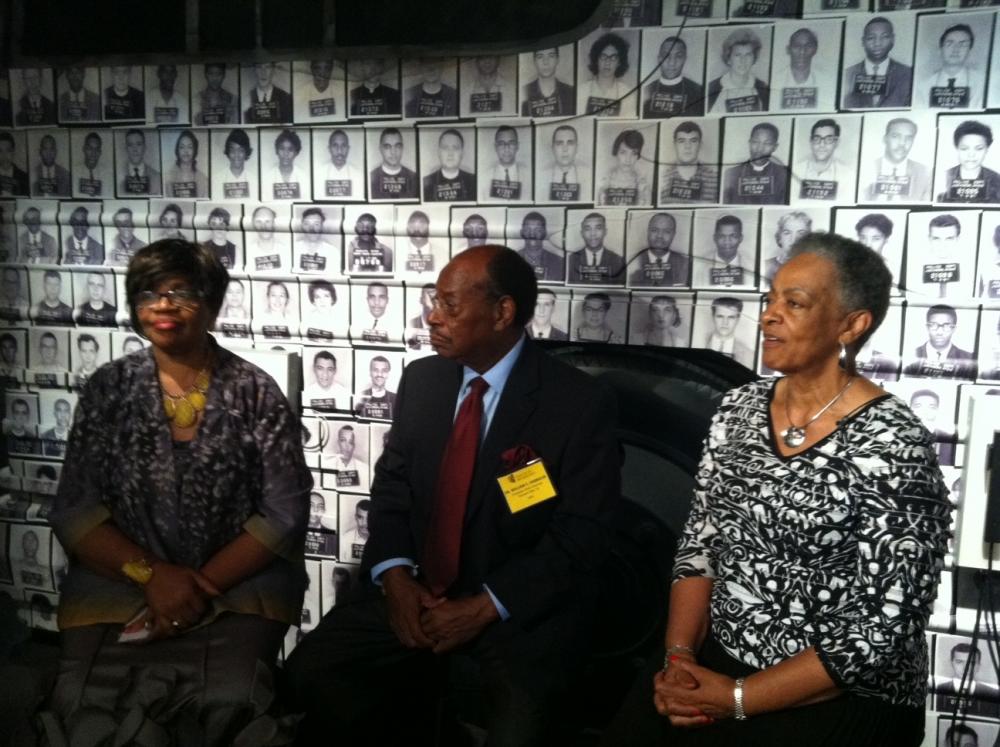
Section Branding
Header Content
More Than 50 Years Later, The Freedom Riders Reflect On That Summer Of Activism
Primary Content

The National Center for Civil and Human Rights is now open in Atlanta. One of the exhibits features the Freedom Riders, young people who rode buses across the South in 1961 to integrate interstate travel.
During their journey, people spit on the riders. They were also beaten and jailed. Julia Humbles was a student at Southern University in New Orleans at the time. She says the Freedom Rides were key to the civil rights movement.
“Our goal was to end discrimination in interstate travel. When we started in May the signs were up, ‘Coloreds’ ‘Whites’ and all of those things. At the end of November the signs had come down.”
Dr. William E. Harbour was another college student mobbed by 200 people in Montgomery, Alabama. He says his siblings and his mother also suffered because of his activism.
“Because of the Freedom Ride. They saw me on television, and she got fired from her job. She was a maid, a house maid. My father was a supervisor in a factory. He was called in several times, but he was never fired. But they stood behind me.”
Harbour says many of the Freedom Riders came from religious families, and their faith helped them keep hope alive.
Glenda Gaither Davis was one of the first group of Freedom Riders. She says looking at the footage now, she can see that they were able to change peoples’ hearts.
“Even in the mobs of people who chose to spit on us and call us names and all of that, at some of the places you see the same kinds of people. And there seem to have been a change in their facial expression. Maybe not on your side yet, but not quite sure that the side that I was on before was the right one.”
The National Center for Civil and Human Rights is now open to visitors in downtown Atlanta.
